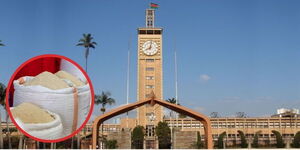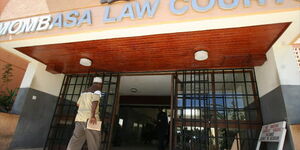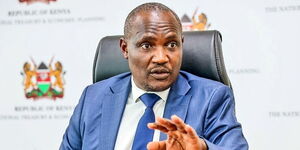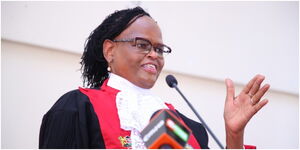Government spokesperson Isaac Mwaura has blamed the shortage of technical staff in ministries on poor recruitment habits.
Mwaura, on Friday, stated that the ministries had focused on hiring support staff only, leading to an imbalance which affects service delivery.
“Staff shortage especially technical ones across government was also found to be another gap as there are more support staff than technical due to hiring of staff in disregard of the staff establishments,” a statement he released read in part.
Support staff majorly carry out administration duties while the technical ones are more entrenched in creating and executing policies based on different qualifications such as education levels, years of experience and skill sets.
Mwaura's statement compounded the recent negative developments in the government workforce across various sectors including the influx of ghost workers, cartels and bloating wage bills.
In August 2023, the Salaries and Remuneration Commission (SRC) increased the salaries of civil servants but warned that there was a need to regulate ghost workers.
SRC chairperson Lyn Mengich further projected the wage bill to rise from Ksh987 billion to around Ksh1 trillion, with the number of employees increasing to around 968 million.
Mengich attributed the increase in both the wage bill and employees to the continued hiring of civil servants in key sectors of health, education, teaching, and security. However, based on Mwaura's warning, the Public Service Commission may have to reassess its hiring strategies.
Mwaura, a former senator, issued the statement on the backdrop of a report that evaluated the performance of the 22 government ministries in President William Ruto's administration.
On Thursday, a report by the Public Service Commission (PSC), revealed that Rift Valley communities dominate most of the non-competitive State jobs, and hold a substantial 21.8% share, highlighting a lack of ethnic diversity in the public service.
The report further showed that 1,193 officers were recruited non-competitively by 47 organizations, representing a 9% rate.
This trend in appointments and non-competitive appointments led to the PSC's recommendations that all public organisations comply with the requirement of fair competition and merit in making appointments except in instances where under-representation is being addressed.
Additionally, it was also reported that 502 employees working in different sectors of the government used fake certificates to acquire jobs.
According to the PSC, 66 institutions within the service sector with cases of certificate forgery with the State Department for Internal Security and National Administration leading with the highest number of forgeries.
However, despite these forgeries in the government, some state organisations are working without the required numbers of staff according to the PSC.
Twelve organisations were recorded to be operating with less than 70 per cent of the approved staff levels while four operated with 10 per cent or less.
Further developments on the hiring patterns in the government, revealed that there were more than 483 ghost employees on the Statehouse payroll who were not recorded on the approved staff register.












